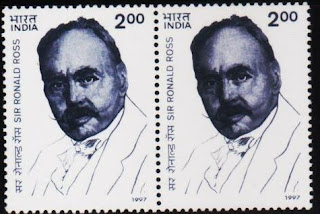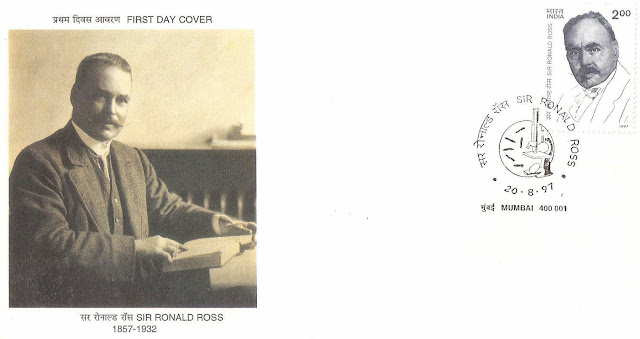1832 Died: Georges Cuvier, French zoologist and academic (b. 1769)
Jean Léopold Nicolas Frédéric, Baron Cuvier (23 August 1769 – 13 May 1832), known as Georges Cuvier, was a French naturalist and zoologist, sometimes referred to as the "founding father of paleontology". Cuvier was a major figure in natural sciences research in the early 19th century and was instrumental in establishing the fields of comparative anatomy and paleontology through his work in comparing living animals with fossils.
Cuvier's work is considered the foundation of vertebrate paleontology, and he expanded Linnaean taxonomy by grouping classes into phyla and incorporating both fossils and living species into the classification. Cuvier is also known for establishing extinction as a fact—at the time, extinction was considered by many of Cuvier's contemporaries to be merely controversial speculation. In his Essay on the Theory of the Earth (1813) Cuvier proposed that now-extinct species had been wiped out by periodic catastrophic flooding events. In this way, Cuvier became the most influential proponent of catastrophism in geology in the early 19th century. His study of the strata of the Paris basin with Alexandre Brongniart established the basic principles of biostratigraphy.
Among his other accomplishments, Cuvier established that elephant-like bones found in the USA belonged to an extinct animal he later would name as a mastodon, and that a large skeleton dug up in Paraguay was of Megatherium, a giant, prehistoric ground sloth. He named the pterosaur Pterodactylus, described (but did not discover or name) the aquatic reptile Mosasaurus, and was one of the first people to suggest the earth had been dominated by reptiles, rather than mammals, in prehistoric times.
His most famous work is Le Règne Animal (1817; English: The Animal Kingdom). In 1819, he was created a peer for life in honor of his scientific contributions. Thereafter, he was known as Baron Cuvier. He died in Paris during an epidemic of cholera. Some of Cuvier's most influential followers were Louis Agassiz on the continent and in the United States, and Richard Owen in Britain. His name is one of the 72 names inscribed on the Eiffel Tower.
French stamp and FDC depicting Georges Cuvier
1857 Born: Ronald Ross, Indian-English physician and mathematician, Nobel Prize laureate (d. 1932)
Sir Ronald Ross (13 May 1857 – 16 September 1932) was a British medical doctor who received the Nobel Prize for Physiology or Medicine in 1902 for his work on the transmission of malaria, becoming the first British Nobel laureate, and the first born outside Europe. His discovery of the malarial parasite in the gastrointestinal tract of a mosquito in 1897 proved that malaria was transmitted by mosquitoes, and laid the foundation for the method of combating the disease. He was a polymath, writing a number of poems, published several novels, and composed songs. He was also an amateur artist and natural mathematician. He worked in the Indian Medical Service for 25 years. It was during his service that he made the groundbreaking medical discovery. After resigning from his service in India, he joined the faculty of Liverpool School of Tropical Medicine, and continued as Professor and Chairman of Tropical Medicine of the institute for 10 years. In 1926 he became Director-in-Chief of the Ross Institute and Hospital for Tropical Diseases, which was established in honour of his works. He remained there until his death.
Indian stamp and FDC depicting Ronald Ross
1909 – The first Giro d'Italia starts from Milan. Italian cyclist Luigi Ganna will be the winner.
The Giro d'Italia (English: Tour of Italy; also known as the Giro) is an annual multiple-stage bicycle race primarily held in Italy, while also starting in, or passing through, other countries. The first race was organized in 1909 to increase sales of the newspaper La Gazzetta dello Sport; and is still run by a subsidiary of that paper's owner. The race has been held annually since its first edition in 1909, except during the two world wars and the 2020 coronavirus pandemic. As the Giro gained prominence and popularity the race was lengthened, and the peloton expanded from primarily Italian participation to riders from all over the world. The Giro is a UCI World Tour event, which means that the teams that compete in the race are mostly UCI WorldTeams, with some additional teams invited as 'wild cards'.
Along with the Tour de France and Vuelta a España, the Giro is one of cycling's prestigious three-week-long Grand Tours. The Giro is usually held during May, sometimes continuing into early June. While the route changes each year, the format of the race stays the same, with at least two time trials, and a passage through the mountains of the Alps, including the Dolomites. Like the other Grand Tours, the modern editions of the Giro d'Italia normally consist of 21 stages over a 23 or 24 day period that includes two or three rest days.
The rider with the lowest aggregate time is the leader of the general classification and wears the pink jersey. While the general classification gathers the most attention, stages wins are prestigious of themselves, and there are other contests held within the Giro: the points classification, the mountains classification for the climbers, young rider classification for the riders under the age of 25, and the team classification.
Italian and San Marino stamps issued to commemorate the Giro d'Italia






No comments:
Post a Comment